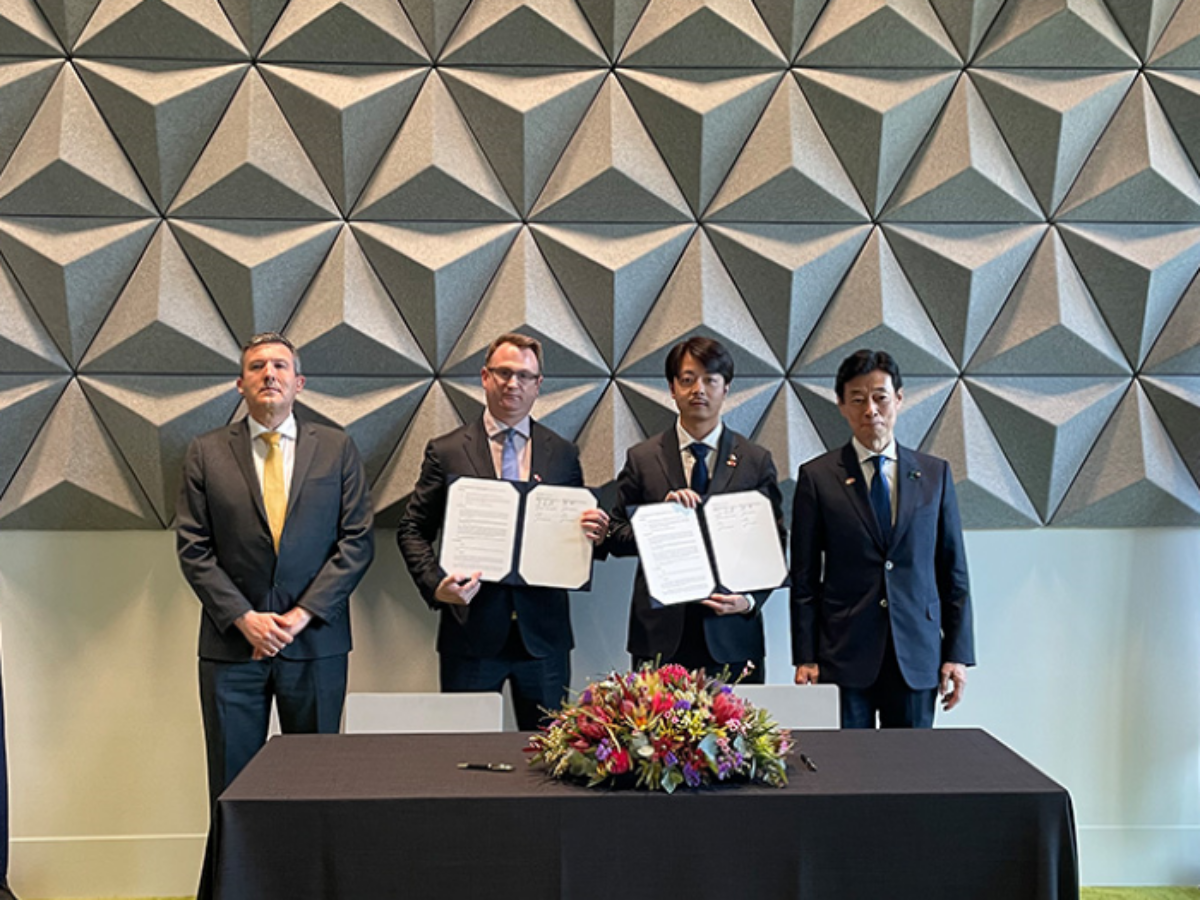Manufacturing news briefs – stories you might have missed

EOS enters optical surveillance alliance
Electro Optic Systems subsidiary EOS Space Systems has entered into a Memorandum of Understanding (MoU) with EX-Fusion, a Japanese laser fusion startup. The signing took place during the fifth Japan-Australia Ministerial Economic Dialogue co-chaired by Minister for Trade and Tourism, Senator Don Farrell, and Japan’s Minister of Economy, Trade and Industry, Nishimura Yasutoshi. EOS already provides optical surveillance capabilities for space situational awareness and satellite safety of flight. The companies will explore the usage of high-power laser technologies developed for laser fusion purposes to help address the space debris problem. One strategy to mitigate the space debris problem is to use optical ground stations equipped with high-power laser systems to remove space debris.
Additive Assurance installs it own 3D printer
3D printing quality assurance business Additive Assurance has established a Centre of Excellence for metal additive manufacturing quality at their Oakleigh facility in Victoria. The company recently commissioned a TRUMPF/Sisma Mysint 300 laser powder bed fusion system, which will serve as a demonstration facility for quality assurance applications. The Centre of Excellence is expected to be a hub of innovation and collaboration in the field of metal additive manufacturing as well as facilitating research, development, and training, contributing to the growth and advancement of the industry.
Federal government launches heavy mineral roadmap
The Australian Government has launched a Heavy Mineral Map of Australia. Developed by Geoscience Australia in collaboration with Curtin University, the map was created created using heavy mineral samples found in floodplain sediments from across the country. Heavy minerals are used around the world for mineral and energy exploration, including in the search for critical minerals. Minister for Resources and Minister for Northern Australia, Madeleine King, said that the development of the Heavy Mineral Map of Australia was a world-first in precompetitive geoscience, providing a continent-wide view of heavy mineral distribution. By analysing the heavy mineral samples in floodplain sediments, geologists can determine the likelihood of mineral deposits upstream. For example, if the mineral scheelite is found in a sediment sample, the catchment upstream may contain tungsten, a critical element used in the production of electrodes, an essential ingredient in batteries.
Glencore to close Mt Isa mine and copper refinery
Mining company Glencore has announced it will close its copper operations at its Mount Isa mine along with its associated copper refinery. One of the largest refineries in the country, the closure significantly reduces the value-adding being performed on this critical metal in Australia – most copper is exported relatively unprocessed. A number of smaller mines in the area utilise the Mt Isa refinery, putting their operations in jeopardy. More than 1,200 employees will be affected. Gelncore said: “The remaining mineral resources are not economically viable due to low ore grades and areas where, due to geological conditions, safe extraction can't be achieved using current technology, this all coupled with ageing infrastructure.”
Whiskey Project snares US defence innovation funding
Tactical defence watercraft builder The Whiskey Project Group has won a US$12.5 million grant from the US Defense Innovation Unit (DIU). The company took to social media and said it would supply vessels for experimentation, prototyping, and concept development by the United States Marine Corps. The first of the boats is under construction and will be delivered this year. The company is planning to expand its operations in the US, with a focus on defence ship construction activities around Mississippi, Virginia and North Carolina.
South Australia retreats from electrification, goes hybrid instead
The South Australian government has confirmed its move away from electrifying its suburban rail system, deploying the first diesel hybrid railcars on the network instead. While three major rail lines in Adelaide have been electrified, the government has deployed the first hybrid-diesel train on the Outer Harbor, Grange and Belair lines. Hybrid-diesel trains use up to 20 per cent less fuel than their diesel counterparts. In total 44 diesel railcars are to be upgraded.
Iluka Resources presses ahead with rare earths plant
Materials company Iluka Resources is focused on the completion of FEED studies for its proposed rare earths refinery at Eneabba, north of Perth. The company told investors work was underway including bulk earthworks and operational camp construction at the site for the project, which is supported by a $1.25 billion non-recourse loan to Iluka under the federal government’s Critical Minerals Facility. These works will be completed this year. The FEED studies are being conducted by Fluor Australia and will be completed this year.
Picture: Electro Optic Systems/Xavier Simonet, CEO, Austrade; James Bennett, Executive
Vice President, EOS Space Systems; Kazuki Matsuo, President, EX-Fusion;
His Excellency Mr Nishimura Yasutoshi, Minister of Economy, Trade and
Industry of Japan
Topics 3d printing Additive Assurance additive manufacturing Critical Minerals Facility Curtin University defence innovation Electro Optic Systems EOS Space Systems EX-Fusion Fluor Australia fusion Geoscience Australia Heavy Mineral Map Iluka Resources Japan-Australia Ministerial Economic Dialogue laser fusion lasers Manufacturing News Rare earths Senator Don Farrell The Whiskey Project Group United States Marine Corps
@aumanufacturing Sections
Analysis and Commentary Awards casino reviews Defence Gambling Manufacturing News Online Casino Podcast Technology Videos





